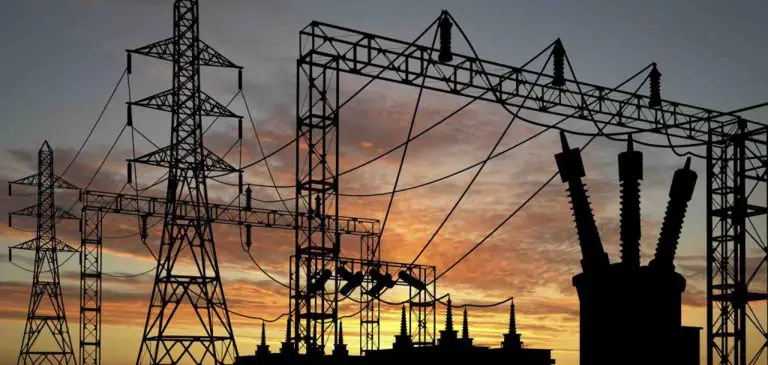
By Adeyemi Oluwatosin
Tragedy struck a music studio in Bayelsa on Wednesday, May 22, 2024, when seven individuals lost their lives due to lethal generator fumes.
This heart-wrenching incident is not an isolated occurrence, as similar tragedies have been reported in the past, highlighting the deadly hazards posed by generators when used in enclosed spaces.
The alarming frequency of these incidents has once again brought to the forefront the pressing need for improved safety measures and awareness campaigns to prevent further loss of life due to generator-related incidents.
From Delta to Imo and Kogi, the tales of tragedy spread like wildfire, claiming the lives of those who were simply going about their day-to-day activities. From a family gathering to a traditional wedding ceremony, from a student’s lodgings to an apprentice’s workplace, these horrifying incidents all had one thing in common: the silent killer known as generator fumes.
Like grains of sand on a beach, the number of victims continues to pile up, underscoring the severity of this public health crisis. What makes it all the more chilling is the sheer banality of these fatalities – death by a device that most people take for granted.
Every year, headlines scream the same gut-wrenching story of lives cut short by poisonous generator fumes. This perennial threat has become almost an accepted fact of life, as the grief and pain of the victims’ families fade into the background of our collective consciousness. Yet, the tragic cycle continues, with no end in sight.
The pulsating hum of generators is a daily soundtrack in many Nigerian households, a symphony of human ingenuity and governmental negligence. In the absence of reliable electricity, citizens have little choice but to turn to these fuel-powered machines for their power needs.
While some might laud this workaround as a triumph of human resourcefulness, it also highlights a profound failure of the state to fulfill its basic responsibilities to its citizens. Instead of enjoying the fruits of technological progress, Nigerians are left to contend with the dangers and drawbacks of makeshift solutions, all while footing the bill for a government that continues to fall short of its obligations.
Minister of Power, Adelabu, revealed an unfortunate dichotomy in Nigeria’s electricity landscape. While the country boasts an astonishing 40,000MW of power generated by privately-owned diesel and petrol generators, its national grid, despite being intended for baseload supply, struggles to consistently produce more than a fraction of that power at around 3,500MW to 4,500MW.
This contrasts starkly with the state of affairs in many African countries, where citizens enjoy the benefits of a more robust and reliable power grid.
Nigeria, a nation that should be an African powerhouse, is instead hobbled by a power sector that sputters along like a faulty generator. The woefully inadequate output of 3,500-4,500MW from the national grid pales in comparison to the 60,000MW+ generated in countries like Egypt and South Africa.
You’re not alone in questioning why Nigeria’s governments have struggled to bring stable power supply to its people. The answer, it seems, lies in a chronic lack of foresight and leadership.
The perils of generator-generated electricity extend far beyond the economic hardships they cause. Their deleterious fumes are veritable smog-clouds of toxicity, unleashing a deadly cocktail of noxious gases and particles into the air.
These contaminants include carbon monoxide, which is a silent killer, asphyxiating its victims in mere minutes; carbon dioxide, which starves the lungs of oxygen; and nitrogen oxides and sulfur dioxide, which trigger acid rain and respiratory diseases.
Carbon dioxide and carbon monoxide are the twin terrors of generator fumes, insidious assassins that lurk in the air, wreaking havoc on the human body.
Their effects are both immediate and insidious, manifesting as respiratory issues, dizziness, headaches, asphyxiation, muscle weakness, and even cognitive impairment and heart disease. As the poison builds up, the body slowly succumbs, leading to death, stroke, high blood pressure, or kidney damage, among a plethora of other ailments.
If climate change is a race against time, then Nigeria’s reliance on generators is akin to running in quicksand, bogging down global efforts to curb the effects of greenhouse gases.
With each puff of smoke from a generator’s exhaust, the world inches closer to irreversible environmental catastrophe. The urgency of the situation demands a swift and decisive response from policy makers. Yet, Nigeria’s government has turned a blind eye to this looming crisis, prioritizing lip service over concrete action.
The solution is clear: a reliable and constant electricity supply that frees the population from its reliance on these diesel-powered time bombs.
Educating the public about generator safety, while a step in the right direction, is akin to putting a bandaid on a gushing wound. The root cause, the need for a stable electricity supply, must be addressed if we’re to move beyond this vicious cycle.
If the government were to solve this chronic issue, they would effectively hit a half-century mark, invigorating businesses, rejuvenating the economy, and elevating the quality of life for all. This is a watershed moment for Nigeria, a chance to flip the switch on a brighter, more sustainable future.
Follow Adeyemi Oluwatosin on X
https://twitter.com/humanistadeyemi?t=93I0y2eqnaWtmH5EFnFmgQ&s=09

